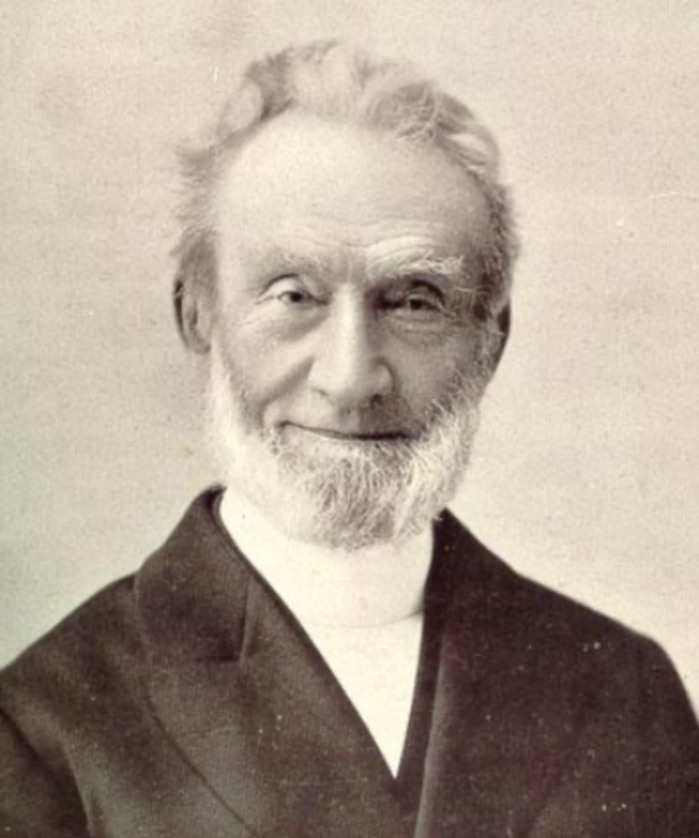Many readers of these brief missionary biographies will know something of the remarkable life of George Müller (1805-1898), how he showed amazing trust in the Lord to provide for the orphans that he cared for – a total of 10,024 orphans during his lifetime.
Through his faith in God to provide, so comprehensive was his orphan care that he was even accused by some of raising the poor above their natural station in British life! What a very Victorian sentiment! He established 117 schools that offered Christian education to more than 120,000 children.
But some may not know that George Müller also made a very significant contribution, personally and methodologically, to cross-cultural missions.
Müller, born in Germany, moved in 1829 to England to work with the London Society for Promoting Christianity Amongst the Jews. The relationship with the Society was not a happy one and he left to become the minister of Ebenezer Chapel in Shaldon, Devon, marrying Mary Groves at that time. His pastor’s remuneration was raised, amazingly, through the renting of church pews. Müller renounced his salary, believing that the practice could lead to church members giving out of duty, not desire. It was an early step in perhaps the main message of his life: his faith in the Lord, not men, to provide.
In 1832 Müller moved to Bristol, to begin working at Bethesda Chapel. Müller and his wife’s work with orphans began in 1836 in their own rented home in Bristol as they took in thirty needy girls to live with them. Soon after, three more houses were furnished, not only for girls but also for boys, eventually caring for 130 children. In 1845 Müller decided that a separate building designed to house three hundred children was necessary. In 1849, at Ashley Down, Bristol, the new home opened. By 26 May 1870, 1,722 children were being accommodated in five homes.
Müller never made requests for financial support, nor did he go into debt, even though the five homes cost more than £100,000 to build. Many times he received unsolicited food donations only hours before they were needed to feed the children, further strengthening his faith in God. Müller was in constant prayer that God would touch the hearts of donors to make provisions for the orphans. Müller once shared that “a brother in the Lord came to me this morning and, after a few minutes of conversation, gave me two thousand pounds for furnishing the new Orphan House … Now I am able to meet all of the expenses. In all probability, I will even have several hundred pounds more than I need. The Lord not only gives as much as is absolutely necessary for His work, but He gives abundantly. This blessing filled me with inexplicable delight. He had given me the full answer to my thousands of prayers during the past 1,195 days.” Müller never sought donations from specific individuals and relied on the Lord for all of his needs. Accounting records were scrupulously kept and made available for scrutiny.
But then Müller’s first wife passed away in 1870. The following year, 1871, Müller married Susannah Grace Sanger. With the orphans well cared for by others, these events seem to trigger a very different second phase of Müller’s service for the Lord, that of his involvement in cross-cultural mission.
On 26 March 1875, at the age of 71, Müller and Susannah began a 17-year period of missionary travel. During this period as an itinerant missionary, Müller and his wife travelled over 200,000 miles (before the age of aeroplane travel) to preach the gospel of Jesus Christ in 42 countries, including Switzerland, Germany, the Netherlands, Canada, the United States, France, Spain, Italy, Egypt, Palestine, Syria, Asia Minor, Turkey, Greece, Austria, Hungary, Bohemia, Russia, Poland, India, Australia, China, Japan, Malacca, Singapore, Penang, Colombo, New Zealand, Ceylon – and more! In his lifetime, George preached the gospel to three million people.
Apart from his missionary travels, Müller made one more contribution to cross-cultural mission. He laid the foundation for what is called “faith missions”, because of his own testimony of trusting the Lord to provide in answer to prayer. Müller recorded over 10,000 answered prayers in his journal. “Be assured, if you walk with Him and look to Him, and expect help from Him, He will never fail you.” He prayed to God and the Lord prompted others to donate what was needed. This was the way he ran his orphanages and equally the way he funded his missionary travels. As his walk of faith became known, this principle of ‘faith missions’, that is looking to God and not to men to provide, was adopted by several missionary agencies. What worked for orphans in Bristol, that walk of faith also worked for reaching the lost in the ends of the earth. That is his lasting legacy to missionary service.



